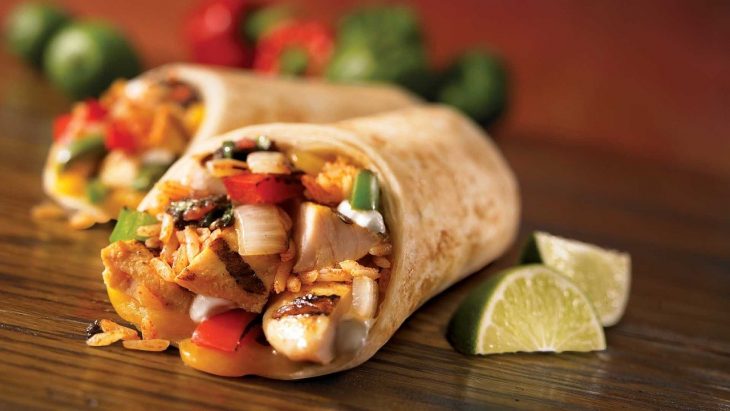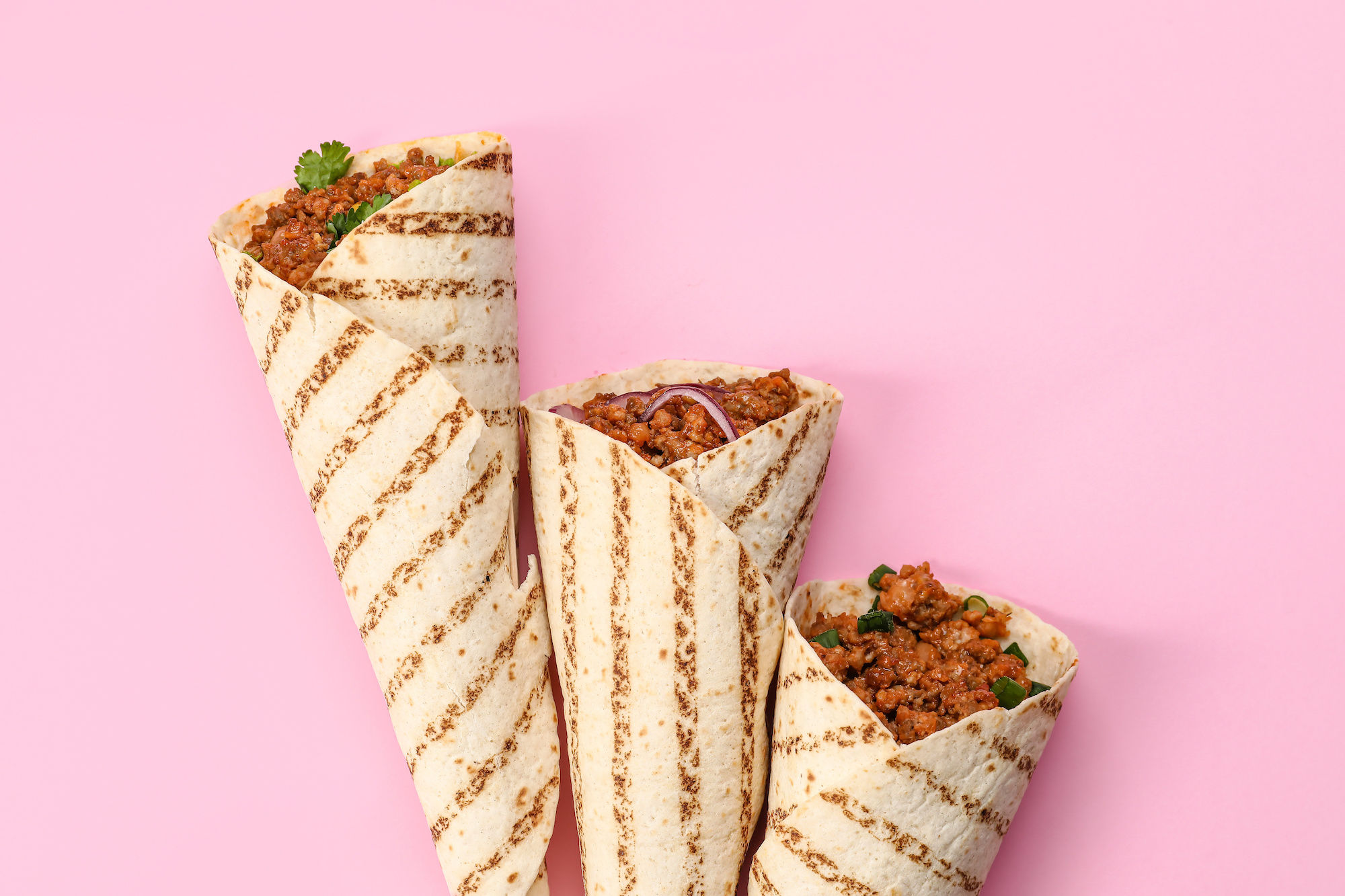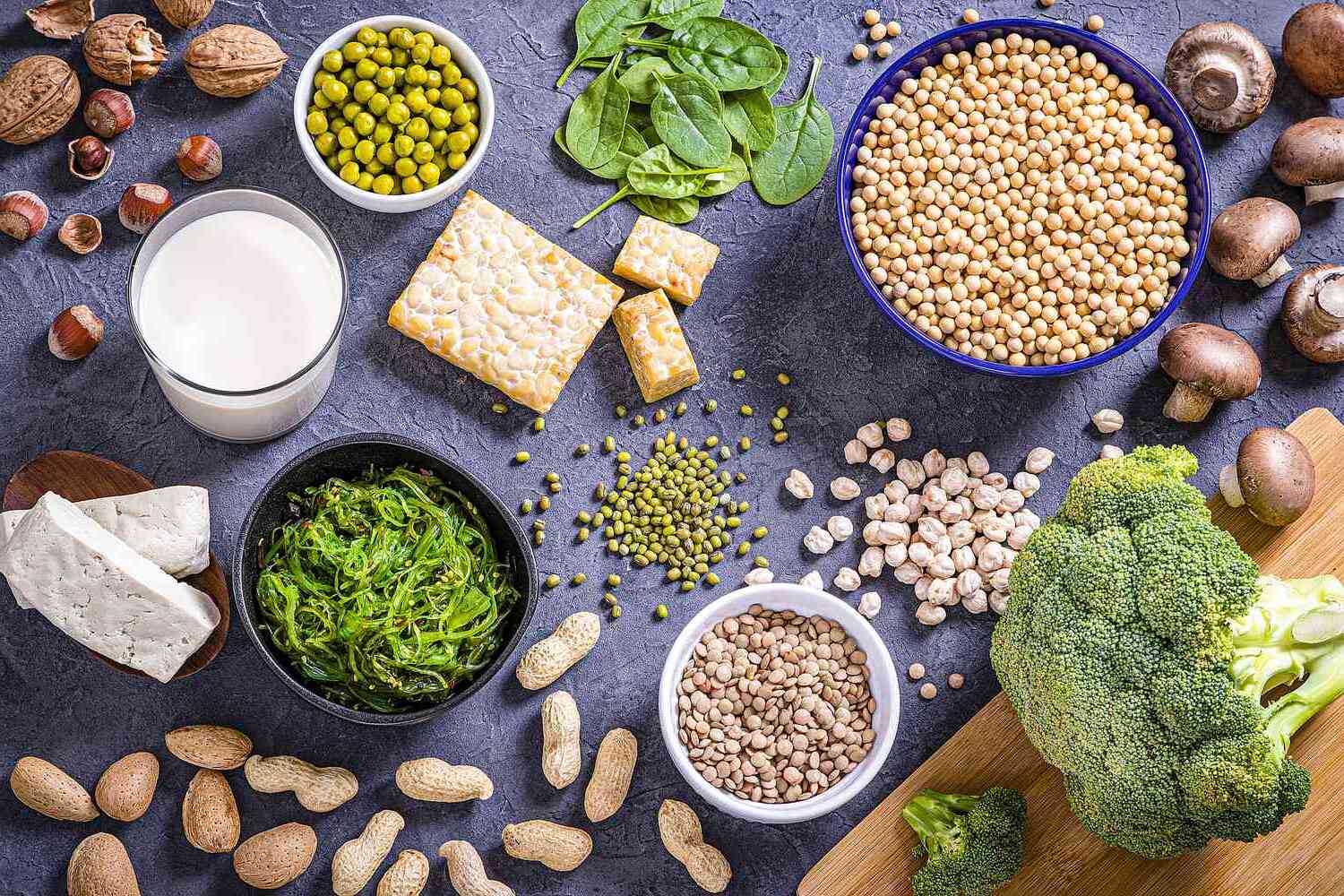
Ah, the burrito. This quintessential Mexican dish, beloved by millions worldwide, is a testament to culinary ingenuity. Rolled in a soft tortilla, brimming with an array of ingredients from rice, beans, and meat to cheese, salsa, and guacamole, it’s a flavorful feast in every bite. But have you ever wondered about the nutritional benefits hidden within these tasty bundles? Let’s unwrap 20 scrumptious burrito nutrition facts.
Caloric Content
The calorie count in a burrito can vary widely based on its ingredients and size. A standard fast-food burrito can range between 500-1000 calories.
Source of Protein
Burritos can be a good source of protein, especially when filled with meat, beans, or cheese. A chicken burrito, for instance, can provide around 20-30 grams of protein.
Fiber-rich Beans
Beans, a common burrito filling, are rich in dietary fiber, which supports digestive health and can help regulate blood sugar levels.
Variety of Vitamins
Depending on the fillings, a burrito can deliver an array of essential vitamins. It might provide vitamin C from peppers and tomatoes, B vitamins from enriched rice and beans, and vitamin A from cheese or guacamole.
Mineral Content
Burritos are also a source of vital minerals. Iron, magnesium, potassium, and zinc are among the essential minerals you can get from a standard burrito.
Saturated Fat
Burritos, particularly those laden with cheese, sour cream, or fatty meats, can be high in saturated fats. Excessive intake of these fats can raise cholesterol levels, so moderation is key.
Carbohydrates for Energy
Rice and tortilla, the two main components of a burrito, are excellent sources of carbohydrates. Carbs provide the energy your body needs to carry out its daily functions.

Sodium Content
Most fast-food burritos contain high levels of sodium due to their processed ingredients. Consuming too much sodium can lead to high blood pressure and other health problems.
Customizable for Dietary Needs
The customizable nature of burritos allows for modifications to suit different dietary needs. From vegan and vegetarian options to gluten-free or low-carb variations, there’s a burrito for everyone.
Antioxidants in Vegetables
Adding vegetables like bell peppers, tomatoes, onions, or lettuce to your burrito not only enhances its flavor but also infuses it with beneficial antioxidants.
Omega-3 in Avocados
If your burrito includes guacamole or sliced avocado, you’ll benefit from a decent amount of heart-healthy omega-3 fatty acids.
Dairy and Calcium
The cheese and sour cream often found in burritos are good sources of calcium, which is essential for bone health.
High in Energy Density
Due to their high caloric content, burritos are energy-dense foods. This makes them a filling meal option, providing sustained energy throughout the day.
Influences of Preparation Method
The nutritional profile of a burrito can be influenced by the preparation method. Grilling, for instance, uses less oil than frying, making it a healthier option.

Versatile Protein Sources
Burritos can be filled with various protein sources, from traditional meats like beef, chicken, and pork to vegetarian options like tofu, lentils, or black beans.
Gluten Concerns
Traditional burritos are not gluten-free as they are made with wheat flour tortillas. However, many places now offer gluten-free tortillas made from corn or other gluten-free grains.
Potential for High Sugar Content
Some burrito ingredients, particularly certain sauces or marinades, can contain hidden sugars. It’s wise to be aware of this if you’re monitoring your sugar intake.
Importance of Portion Control
While a burrito can be part of a balanced diet, portion control is essential due to their high calorie and sodium content.
The Role of Fresh Ingredients
Opting for fresh ingredients can significantly improve the nutritional profile of your burrito. Fresh veggies, lean meats, and homemade salsas are healthier options.
Balancing Act of a Healthy Burrito
Creating a nutritionally balanced burrito involves choosing a variety of ingredients from different food groups. A mixture of proteins, vegetables, and complex carbohydrates can contribute to a healthier meal.
Conclusion
So there you have it, 20 fascinating nutrition facts about the delicious world of burritos. They are not just a feast for the taste buds, but also a versatile dish that can be tailored to provide a myriad of nutrients. Happy burrito-eating!
Was this page helpful?
Our commitment to delivering trustworthy and engaging content is at the heart of what we do. Each fact on our site is contributed by real users like you, bringing a wealth of diverse insights and information. To ensure the highest standards of accuracy and reliability, our dedicated editors meticulously review each submission. This process guarantees that the facts we share are not only fascinating but also credible. Trust in our commitment to quality and authenticity as you explore and learn with us.


